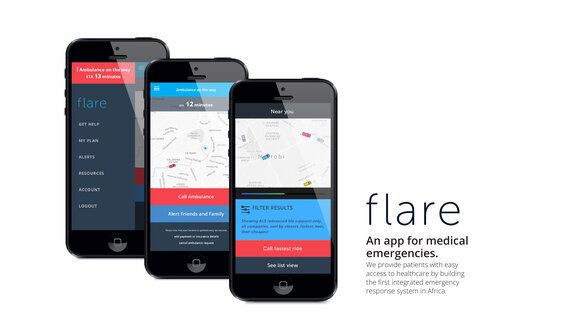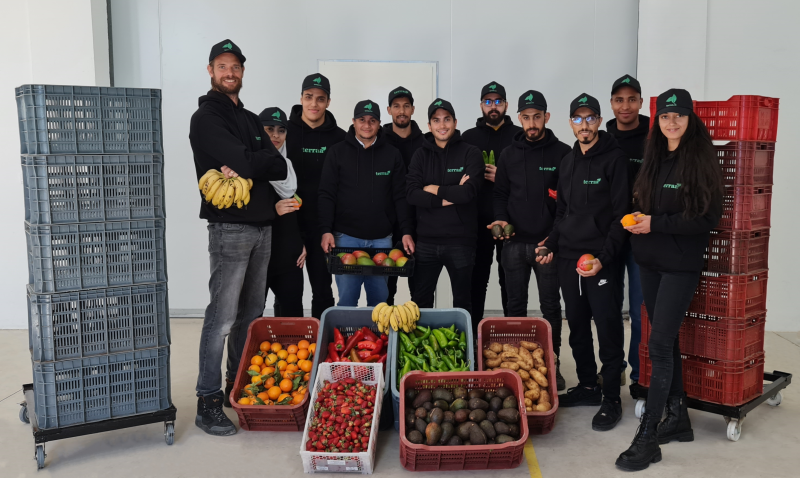In countries where the health emergency system is poor, the anxiety and risks associated with waiting for an ambulance to arrive are generally high. In Kenya, this time was estimated at 162 minutes by the Johns Hopkins International Injury Research Unit, because there was no central emergency number. Kenyans had only one option: to call local ambulances in the hope of finding an available and responsive one. It was in this context that Flare Emergency Response was born, an emergency response solution that centralises ambulance dispatch and connects the Kenyan population to vital services.
Flare Emergency Response, the 'Uber-like' system to help ambulance drivers
Maria RavinovichUX designer and Caitlin DokartBoth are healthcare specialists and co-founders of Flare in 2016.
Their goal was to create a solution that would provide a quicker and more appropriate response to medical emergencies for the people of Kenya, using state-of-the-art technology.
The two entrepreneurs were inspired by the Uber model to bring together all emergency vehicles (ambulances, fire brigade, police) on a single platform. These vehicles are equipped with real-time geolocation systems. This makes it possible to respond quickly and efficiently to any request for assistance.

Users of the platform can call an ambulance, track it and communicate with the team on its way until it arrives. This is a boon for companies and individuals who can now access all the emergency services listed by Flare, by registering on rescue.co or by sending a message to customer service.
Accessible 24/7, Flare allows Kenyan emergency services to be available to everyone, at any time, anywhere in the country.
Flare, a vital solution with social impact
Flare's ultimate goal is to save lives and rescue people in distress who are far from health services. This is a global challenge supported by the United Nations (UN), notably through Sustainable Development Goal (SDG) 3 good health and well-being.
Today, with its technology, Flare has reduced the response time for emergency interventions from hours to minutes in several locations in Kenya. It has also made a difference when managing health crises, including in January 2019, when a luxury hotel complex in Nairobi was attacked. Thanks to its platform, the first ambulances were able to quickly arrive at the scene to collect the injured. "Flare told us what was happening, how to position our ambulances, how to evacuate, how to request additional resources," said an ambulance fleet manager at the hospital where the injured were taken, according to Reuters.
With a strong social impact and an innovative project, Flare was able to attract important partners. The start-up now has more than 20 employees and has raised 250,000 $ in Kofi Annan Prize for Innovation in Africa in July 2022. And it does not plan to limit itself to that. With the capital raised, Flare has the ambition to expand its vital services in East Africa and later throughout Africa.
Based on its app that locates emergency medical centres and connects them with people in danger, Flare is now Kenya's "911" that helps emergency services, both public and private, to help people in distress. With a digital platform accessible to individuals and businesses, Flare Emergency Response is a vital solution that is likely to transform emergency systems across Africa.





